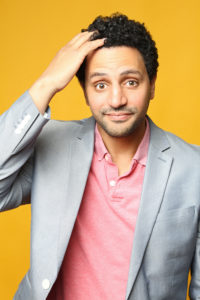Last week the U.S. Court of Appeals for the 4th Circuit in Richmond, VA found that, according to the National Association of School Boards, “a disabled student unilaterally placed in a private school is not entitled to special education services under Section 504 of the Rehabilitation Act (Section 504).”
While the ruling hasn’t received much notice (beyond this write-up in Education Week), it has significant implications for students throughout the country who are enrolled in religious schools but receive services because of a diagnosed disability. In this particular case, the child, D.L., attends a yeshiva in Baltimore and is diagnosed with A.D.H.D. His parents sought services from the local Baltimore school, where he is not enrolled.
One of the arguments made by the child’s attorney was that requiring enrollment in the public district infringed on D.L.’s constitutional right to freedom of religion. However, the panel held that the burden imposed on D.L.’s family was not a violation of religious freedom because the only burden was financial: DL’s parents would have to finance their son’s services themselves:
“BCBSC’s policy [the local district] may raise the overall cost of D.L.’s private education, but this does not offend D.L.’s constitutional rights. The Supreme Court has explained that a statute does not violate the Free Exercise Clause merely because it causes economic disadvantage on individuals who choose to practice their religion in a specific manner.”
In addition, the judges held that the financial burden on the school district – requiring public school teachers to travel to the yeshiva – was unfair to the public system. From EdWeek:
“The right to a religious education does not extend to a right to demand that public schools accommodate [the parents’] educational preferences,” the court said. “[The Baltimore city district] has legitimate financial, curricular, and administrative reasons to require that D.L. enroll exclusively in a public school in order to take advantage of Section 504 services. The school board need not serve up its publicly funded services like a buffet from which [parents] can pick and choose.”
This ruling has particular implications for districts like Lakewood (Ocean County) where about 20,000 kids attend yeshivas in lieu of the (troubled) public district. In fact, Lakewood spends a great deal of its $101,388,888 operating budget on special education services for kids whose parents choose to enroll them in private religious schools, unlike students who, through the IEP process (Individualized Education Plan), are placed in private special education schools by the public district.
Lakewood has a total enrollment of about 4,600 kids. If you scroll through its budget (here
) you’ll find this listing:
Nonpublic Textbooks 803,000
Nonpublic Auxiliary Services 5,100,000
Nonpublic Handicapped Services 3,300,000
Nonpublic Nursing Services 1,297,000
Other Special Projects 2,000,000
These are costs related to providing disability services to students just like D.L. For comparison’s sake, look at another Ocean County district, Toms River, which has a far greater enrollment of 14,480 students. Here’s Toms Rivers’ expenditures on nonpublic services:
Nonpublic Textbooks 85,294
Nonpublic Auxiliary Services 490,334
Nonpublic Handicapped Services 359,612
Nonpublic Nursing Services 121,837
Nonpublic Technology Initiative 84,880
Lakewood spends over $10 million annually on costs incurred by students with disabilities who are not enrolled in the public district. Toms River spends $1.3 million. We’ll wait and see how this federal ruling plays out in New Jersey.


